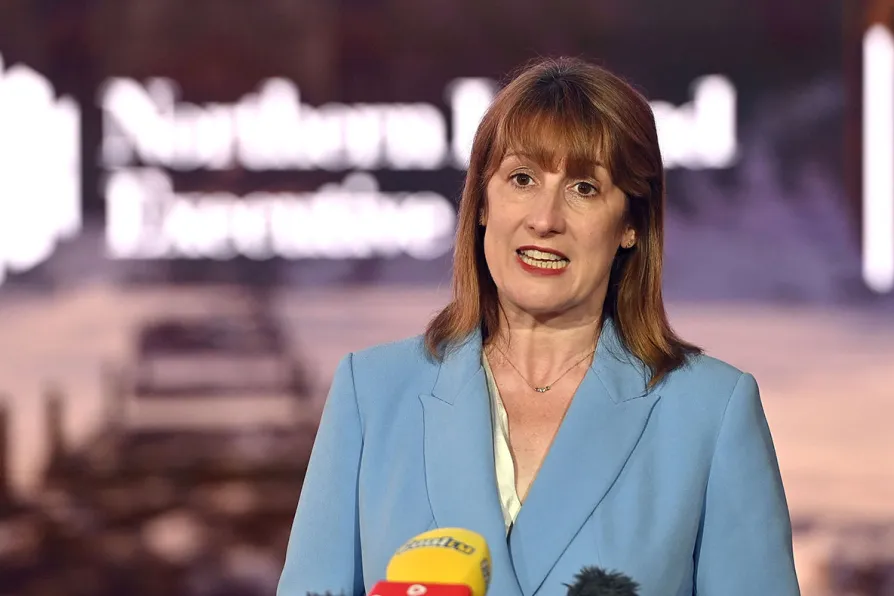
 Chancellor of the Exchequer Rachel Reeves during a visit to Studio Ulster in Belfast, August 12, 2025
Chancellor of the Exchequer Rachel Reeves during a visit to Studio Ulster in Belfast, August 12, 2025
CHANCELLOR Rachel Reeves has been urged by an influential think tank to save more than £100 billion over this Parliament by taxing bank windfalls and taking on less debt from investors.
The Institute for Public Policy Research (IPPR) said that increasing a levy on the profits from major firms such as Barclays, Lloyds, HSBC and NatWest could raise up to £8bn a year for public services.
Slowing down the Bank of England’s sale of bonds — where investors lend the government money for projects or to cover budget shortfalls — would save more than £12bn a year, it said.
The “targeted” nature of the tax would only have a “small impact, if any” on banks’ competitiveness and smaller banks should be exempted from the measure, it added.
In a new report, the IPPR said that Britain is an international outlier and losing an eye-watering £22 billion a year by having its Treasury pay for the Bank's losses on its cash-printing drive.
Rising interest rates since the 2021 have meant the profits from the Bank’s bond-buying quantitative easing (QE) programme turned into record losses.
The public money covering the shortfalls is being funnelled to bank shareholders due to a “flawed” policy design, boosting profits while millions across Britain continue to face cost-of-living pressures, the report says.
IPPR associate director for economic policy and former Bank of England economist Carsten Jung said: “The Bank of England and Treasury bungled the implementation of quantitative easing.
“What started as a programme to boost the economy is now a massive drain on taxpayer money.
“While families struggle with rising costs, the government is effectively writing multi-billion-pound cheques to bank shareholders.”
To rebalance the existing set-up, he recommended that the Treasury introduces a “QE reserves income levy” similar to the 2.5 per cent deposit tax imposed on banks under Margaret Thatcher in 1981.
The IPPR proposed that the receipts from the bank levy would fall to zero once all QE-related gilts are off the Bank of England’s balance sheet, or when the bank rate reaches 2 per cent, meaning the tax would be temporary.
Tax rises in the autumn Budget are expected to plug a growing hole in the public finances, prompting speculation about which areas the Chancellor might target.














